 W
WBožidar Adžija was a Yugoslav communist politician and publicist.
Prof. Dr. Jakob Altaras was a Croatian-German physician and president of the Jewish community Giessen.
 W
WThea Altaras was a Croatian-German architect who was known by her research and publications on Jewish monuments in Hesse, Germany.
 W
WĐuro Milivoj Ašner was a police chief in the Independent State of Croatia who was accused of enforcing racist laws under the Nazi-allied Ustaše regime and expulsion and deportation of hundreds of Serbs, Jews and Romani. He was 4th on the Simon Wiesenthal Center's list of most wanted Nazi war criminals and on the Interpol's most wanted list also.
 W
WMarijan Mijo Babić (1903–1941), nicknamed Giovanni, was a deputy of the Croatian fascist dictator Ante Pavelić, and the first commander of all concentration camps in the Independent State of Croatia. He was head of the Third Bureau of the Ustasha Surveillance Service, and was also a member of the Main Ustaše Headquarters, one of the two main deputies of Pavelić.
 W
WVlado Bagat was a Croatian and Yugoslav soldier.
 W
WVladimir Bakarić was a Yugoslav and Croatian communist revolutionary and a politician.
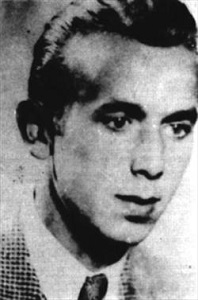 W
WAnte Bakotić was a Croatian Partisan known for marking the beginning of the 1945 breakthrough from the Jasenovac concentration camp by shouting "Forward, comrades!".
 W
WHinko Bauer was a Croatian Jewish architect.
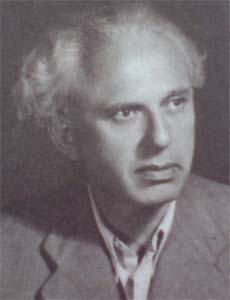 W
WStjepan Betlheim was a Croatian psychiatrist and psychoanalyst.
 W
WAntun Blažić was Croatian Jewish Partisan and People's Hero of Yugoslavia.
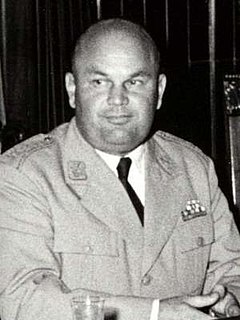 W
WJanko Bobetko was a Croatian general who had participated in World War II and later in the Croatian War of Independence. He was one of the founding members of 1st Sisak Partisan Detachment, the first anti-fascist military unit during World War II in Yugoslavia. He later had a military career in the Yugoslav People's Army (JNA).
 W
WJosip Broz, commonly known as Tito, was a Yugoslav communist revolutionary and statesman, serving in various roles from 1943 until his death in 1980. During World War II, he was the leader of the Partisans, often regarded as the most effective resistance movement in occupied Europe. He also served as the president of the Socialist Federal Republic of Yugoslavia from 14 January 1953 until his death on 4 May 1980.
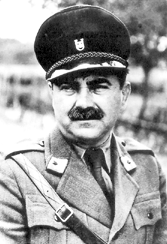 W
WMile Budak was a Croatian politician and writer best known as one of the chief ideologists of the Croatian fascist Ustaša movement, which ruled the Independent State of Croatia during World War II in Yugoslavia from 1941–45 and waged a genocidal campaign of extermination against its Roma and Jewish population, and of extermination, expulsion and religious conversion against its Serb population.
 W
WAnka Butorac was a Croatian communist who died in World War II and was proclaimed a People's Hero of Yugoslavia.
Robert Domany was Croatian Partisan and a People's Hero of Yugoslavia.
 W
WGeorg Dragičević was a Croatian soldier who was a member of the army of Austria-Hungary, Royal Yugoslavia, and the Independent State of Croatia.
 W
WDr. Miroslav Feldman was Croatian Jewish poet and writer. Feldman was born in Virovitica on 28 December 1899. He studied medicine in Zagreb and Vienna. After graduation, he returned to Croatia and worked as a physician in Virovitica, Osijek, Pakrac, Sarajevo and Zagreb. During World War II he joined the Partisans, where he helped organize the medical corps.
 W
WMiroslav Filipović, also known as Tomislav Filipović and Tomislav Filipović-Majstorović, was a Bosnian Croat Franciscan friar and Ustashe military chaplain who participated in atrocities during World War II in Yugoslavia. Convicted as a war criminal in a Yugoslav civil court, he was executed by hanging in 1946.
 W
WFrane Frol was a lawyer and Croatian and Yugoslavian politician. He was a member of the Croatian Peasant Party and the group that split from the party known as the Croatian Republican Peasant Party. In 1943, Frol joined a faction of the HSS cooperating with the Yugoslav Partisans against the Axis powers following the World War II invasion of Yugoslavia. He was a delegated to the State Anti-fascist Council for the National Liberation of Croatia as well as the Anti-Fascist Council for the National Liberation of Yugoslavia. He was appointed to the presidencies of both ZAVNOH and AVNOJ. In 1944, he was appointed the judiciary commissioner in the National Committee for the Liberation of Yugoslavia and then the justice minister in the Provisional Government of the Democratic Federal Yugoslavia and several governments of the Federal People's Republic of Yugoslavia.
 W
WFranjo Gaži was a Croatian and Yugoslavian politician. In 1935 Yugoslavian parliamentary election he was the designated alternate of Croatian Peasant Party candidate Mihovil Pavlek Miškina and became the party's district president for Koprivnica. Following the Axis invasion of Yugoslavia during the World War II and establishment of the Independent State of Croatia in April 1941, the HSS remains largely passive, following instructions of its president Vladko Maček. At the same time, the Communist Party of Yugoslavia and its nominally independent branch, the Communist Party of Croatia launch Partisan resistance. HSS presence in the Partisan movement was established by Božidar Magovac in 1943, and Gaži soon followed him there. Magovac established the HSS executive committee in the Partisans, but after he came into conflict with the KPH secretary Andrija Hebrang, Gaži gradually replaced Magovac with Hebrang's assistance. Thus Gaži became the president of the HSS executive committee, as well as the vice-president of the State Anti-fascist Council for the National Liberation of Croatia established by the KPH as the supreme representative body in Croatia, and vice-president of the National Committee for the Liberation of Yugoslavia. In the final days of the war, the HSS executive committee was under increasing influence of the KPH. It was formally renamed the Croatian Republican Peasant Party and used to politically weaken Maček-led HSS. The HRSS remained a political ally of the KPH after the war and Gaži was elected a member of the Croatian Sabor and of the Yugoslav Parliament. He was a part of several Vladimir Bakarić-led cabinets of Croatia.
 W
WDr. Leon Geršković was a Croatian Jewish lawyer, legal scholar and politician.
 W
WRadoslav Glavaš was a Herzegovinian Franciscan who headed the Department of Religion of the Ministry of Justice and Religion of the fascist Independent State of Croatia during the World War II.
 W
WSlavko Goldstein was a Croatian historian, politician, and writer.
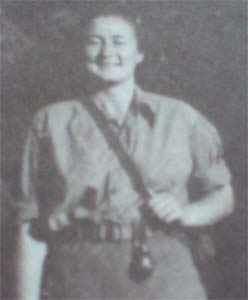 W
WEva Grlić was Croatian journalist and writer, mother of famous Croatian film director and producer Rajko Grlić.
 W
WStjepan Horvat was a Croatian geodesist and professor, dean of the Technical Faculty in Zagreb, head of the University of Zagreb, editor of the journals Geodetski list and Hrvatska državna izmjera, manager of the Department for State Survey in the Croatian Headquarters for Public Affairs, member of the State Land Consolidation Commission, Air Force officer in the time of the Nazi-puppet state Independent State of Croatia, adviser at the Military-Geography Institute in Argentina for 40 years and an honorary member of the Argentine Association of Geophysicists.
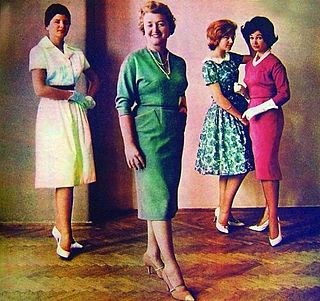 W
WŽuži Jelinek was a Hungarian-born Croatian fashion stylist, designer and writer.
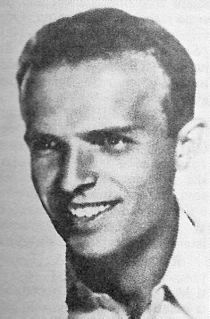 W
WRade Končar was a Croatian Serb politician and leader of the Yugoslav Partisans in the Independent State of Croatia and Dalmatia during the early stages of World War II in Yugoslavia. He became a member of the Communist Party of Yugoslavia (KPJ) in 1934 and was arrested in 1936 when the Belgrade branch of the party was banned by Yugoslav authorities. After serving one year of hard labour in Sremska Mitrovica prison he was released and elected political secretary of the central committee of the Communist Party of Croatia (KPH) in Zagreb. In October 1940, he was made a member of the central committee of the KPJ at the Fifth National Conference of the Communist Party of Yugoslavia.
 W
WAugust Košutić was a Croatian politician and a prominent member of the Croatian Peasant Party (HSS).
 W
WIvan Goran Kovačić was a Croatian poet and writer.
 W
WJosip Kraš was a Croatian communist and partisan who died in World War II and was proclaimed a People's Hero of Yugoslavia.
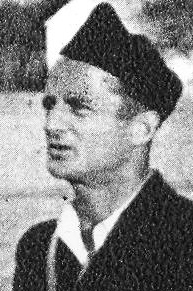 W
WVicko Krstulović was a Yugoslav communist revolutionary, the most prominent Partisan military commander from Dalmatia during World War II, and a post-war communist politician. He was an illegal communist activist during the 1920s and 1930s in Split at a time when communist sympathizers were brutally persecuted by the Yugoslav monarchy. As an officer in the Partisans during World War II, he was in charge of creating and organising the resistance movement in Dalmatia. In Socialist Yugoslavia, he worked in various government offices and was remembered for his work and contribution to his native Split.
 W
WMihajlo Lukić was a Croatian general who began his career as an officer in the Austro-Hungarian Army during World War I, then climbed the hierarchy of the Royal Yugoslav Army, finally joining the Croatian Home Guard during World War II. He was retired in 1943 due to his disapproval of sending Croat volunteers to the Wehrmacht. After the collapse of the Independent State of Croatia, communist authorities sentenced him to 10 years in prison.
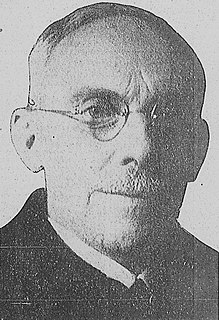 W
WVladimir Maček was a politician in the Kingdom of Yugoslavia. As a leader of the Croatian Peasant Party (HSS) following the 1928 assassination of Stjepan Radić, Maček had been a leading Croatian political figure until the Axis invasion of Yugoslavia in 1941. As a leader of the HSS, Maček played a key role in establishment of the Banovina of Croatia, an autonomous banovina in Yugoslavia in 1939.
 W
WBožidar Magovac was a Croatian journalist and politician, a prominent member of the Croatian Peasant Party.
 W
WAnte Mandić was a lawyer and Croatian and Yugoslavian politician. As a representative of the Yugoslav Committee in Saint Petersburg he organised a Yugoslav voluteer detachment in Odessa. He moved to London in 1917 to work as the secretary of the central office of the Yugoslav Committee in London. After returning to the newly Kingdom of Serbs, Croats and Slovenes, Mandić pursued a career in law. After World War II surrender of Italy, he was appointed the president of the National Liberation Committee in Opatija and a delegate to the State Anti-fascist Council for the National Liberation of Croatia (ZAVNOH) and a member of the Anti-Fascist Council for the National Liberation of Yugoslavia (AVNOJ) presidency. A year later, in 1944, he was appointed the head of the district National Liberation Committee for Istria and the Federal State of Croatia's Commission for War Crimes. In March–November 1945, Mandić was appointed a member of the royal regency council under the Tito–Šubašić Agreements.
 W
WMarko Mesić was a decorated gunnery officer who served in the armies of the Kingdom of Yugoslavia, the Independent State of Croatia, and the SFR Yugoslavia. He is best known for being the final commander of Croatian legionnaires in World War II, serving in the German Wehrmacht on the Eastern Front and in the Battle of Stalingrad.
 W
WLjubomir "Ljubo" Miloš was a Croatian public official who was a member of the Ustashe of the Independent State of Croatia (NDH) during World War II. He served as commandant of the Jasenovac concentration camp on several occasions and was responsible for various atrocities committed there during the war. He fled Yugoslavia in May 1945 and sought refuge in Austria. In 1947, he returned to Yugoslavia with the intention of starting an anti-communist uprising. He was soon arrested by Yugoslav authorities and charged with war crimes. Miloš was found guilty on all counts and hanged in August 1948.
 W
WLav Mirski was Croatian Jewish conductor.
 W
WVladimir Nazor was a Croatian poet and politician. During and after World War II in Yugoslavia, he served as the first President of the Presidium of the Croatian Parliament, and first Speaker of the Croatian Parliament.
 W
WVinko Nikolić was a Croatian writer, poet and journalist, and a high-ranking official in the fascist Independent State of Croatia (NDH). After the downfall of NDH, he emigrated to Buenos Aires, Argentina, where he lived in exile until returning to Croatia, several years before his death.
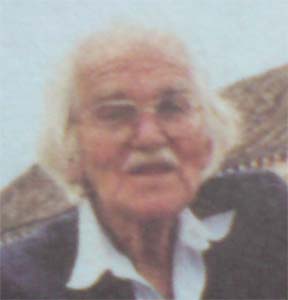 W
WAlfred Pal was Croatian painter and graphic designer.
 W
WAnte Pavelić was a Croatian politician and dictator who founded and headed the fascist ultranationalist organization known as the Ustaše in 1929 and governed the Independent State of Croatia, a fascist puppet state built out of parts of occupied Yugoslavia by the authorities of Nazi Germany and Fascist Italy, from 1941 to 1945. Pavelić and the Ustaše persecuted many racial minorities and political opponents in the NDH during the war, including Serbs, Jews, Romani, and anti-fascists, becoming one of the key figures of the Genocide of Serbs and the Holocaust in NDH.
 W
WIzidor Perera-Matić was Yugoslav physician and member of the Partisan resistance movement.
 W
WZvonimir Pospišil was a Yugoslav mechanic of Croatian origin, known as one of the main Ustaše terrorists who organised the assassination of King Aleksandar of Yugoslavia in 1934.
 W
WJakša Račić was the Mayor of Split between February 1929 and June 1933. An ethnic Croat in modern terms, he was a supporter of King Alexander I's unitarianist policies, and considered himself a Yugoslav and a Dalmatian. He was a medical doctor by profession and one of the few non-Serbian members of the Chetnik movement.
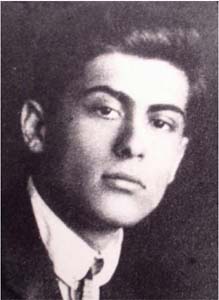 W
WIvan Rein was a Croatian Jewish painter.
 W
WIvan Ribar, known as Ivo Lola or Ivo Lolo, was a Yugoslav communist politician and military leader of Croatian descent. In the 1930s, he became one of the closest associates of Josip Broz Tito, leader of the Yugoslav Communist Party. In 1936, Ribar became secretary of the Central Committee of SKOJ. During World War II in Yugoslavia, Ribar was among the main leaders of the Yugoslav Partisans and was a member of the Partisan Supreme Headquarters. During the war, he founded and ran several leftist youth magazines. In 1942, Ribar was among the founders of the Unified League of Anti-Fascist Youth of Yugoslavia (USAOJ). He was killed by a German bomb in 1943 near Glamoč while boarding an airplane for Cairo, where he was to become the first representative of Communist Yugoslavia to the Middle East Command.
 W
WIvan Rukavina was army general of the Yugoslav People's Army, People's Hero of Yugoslavia and politician.
 W
WAleksandar Savić was a Croatian communist activist and member of the partisan resistance movement in Croatia, murdered during the Holocaust in the Independent State of Croatia.
 W
WDrago Štajnberger was a Croatian Jewish Partisan and a People's Hero of Yugoslavia.
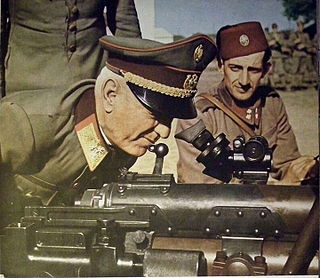 W
WSlavko Štancer was a Croatia commander-in-chief and inspector-general of the land component of the Domobranstvo in 1941, the army of the Independent State of Croatia during the Second World War. His surname is also sometimes written "Stanzer" or "Stancer".
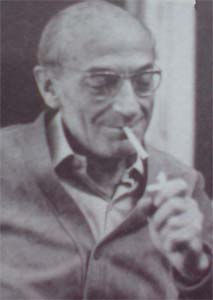 W
WStjepan Steiner was Croatian physician, cardiologist, Major general in the Yugoslav People's Army and personal physician of Josip Broz Tito.
 W
WAloysius Viktor Stepinac was a Yugoslav Croat prelate of the Catholic Church. A cardinal, Stepinac served as Archbishop of Zagreb from 1937 until his death, a period which included the fascist rule of the Ustaše over the Axis puppet state the Independent State of Croatia from 1941 to 1945 during World War II. He was tried by the communist Yugoslav government after the war and convicted of treason and collaboration with the Ustaše regime. The trial was depicted in the West as a typical communist "show trial", and was described by The New York Times as biased against the archbishop. However, Professor John Van Antwerp Fine Jr. claims the trial was "carried out with proper legal procedure". In a verdict that polarized public opinion both in Yugoslavia and beyond, the Yugoslav authorities found him guilty on the charge of high treason, as well as complicity in the forced conversions of Orthodox Serbs to Catholicism. Stepinac advised individual priests to admit Orthodox believers to the Catholic Church if their lives were in danger, such that this conversion had no validity, allowing them to return to their faith once the danger passed. He was sentenced to 16 years in prison, but served only five at Lepoglava before being transferred to house arrest with his movements confined to his home parish of Krašić.
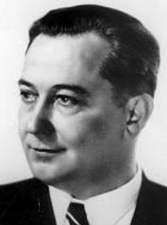 W
WIvan Šubašić was an Yugoslav Croat politician, best known as the last Ban of Croatia and prime minister of the royalist Yugoslav Government in exile during the Second World War.
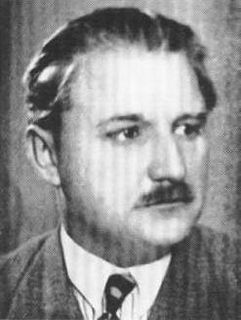 W
WLjudevit Tomašić was a Croatian politician and prominent member of the Croatian Peasant Party (HSS). He is known for his participation in the failed Lorković-Vokić plot in 1944 which aim was to create a coalition government between the Ustaše and the HSS and bring the Independent State of Croatia (NDH) on the side of Allies. Tomašić was arrested in August 1944, and killed in April 1945.
 W
WAnte Vrban was a Croatian major of the Ustaše Militia and later the Croatian Armed Forces of the Independent State of Croatia during World War II. He served as deputy commander of the Stara Gradiška concentration camp and was responsible for various atrocities committed there during the war. After the collapse of the Independent State of Croatia, he fled and sought refuge in Austria. In the summer of 1945, he returned to Yugoslavia with the intention of starting an anti-communist uprising. He was arrested by Yugoslav authorities and charged with war crimes. Vrban was found guilty on all counts and hanged in August 1948.